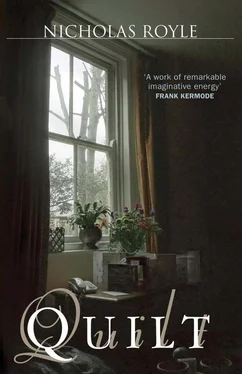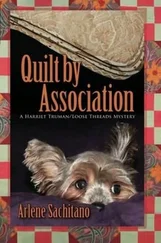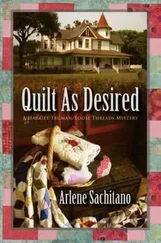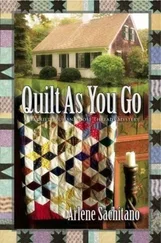Nicholas Royle - Quilt
Здесь есть возможность читать онлайн «Nicholas Royle - Quilt» весь текст электронной книги совершенно бесплатно (целиком полную версию без сокращений). В некоторых случаях можно слушать аудио, скачать через торрент в формате fb2 и присутствует краткое содержание. Год выпуска: 2011, Издательство: Myriad Editions, Жанр: Современная проза, на английском языке. Описание произведения, (предисловие) а так же отзывы посетителей доступны на портале библиотеки ЛибКат.
- Название:Quilt
- Автор:
- Издательство:Myriad Editions
- Жанр:
- Год:2011
- ISBN:нет данных
- Рейтинг книги:4 / 5. Голосов: 1
-
Избранное:Добавить в избранное
- Отзывы:
-
Ваша оценка:
- 80
- 1
- 2
- 3
- 4
- 5
Quilt: краткое содержание, описание и аннотация
Предлагаем к чтению аннотацию, описание, краткое содержание или предисловие (зависит от того, что написал сам автор книги «Quilt»). Если вы не нашли необходимую информацию о книге — напишите в комментариях, мы постараемся отыскать её.
Quilt — читать онлайн бесплатно полную книгу (весь текст) целиком
Ниже представлен текст книги, разбитый по страницам. Система сохранения места последней прочитанной страницы, позволяет с удобством читать онлайн бесплатно книгу «Quilt», без необходимости каждый раз заново искать на чём Вы остановились. Поставьте закладку, и сможете в любой момент перейти на страницу, на которой закончили чтение.
Интервал:
Закладка:
The sound you hear on coming back through the front door, carrying over the peaceful bubbling of the pumps in the ray pool, is a screech. You recognise it immediately: it is the shriek, initially a scrawny cry but rising, made by your mother locked in the bathroom upstairs one night twenty years ago, shortly after the local GP downstairs administers a final dose of morphine, on the occasion of the first death, the deciding death. And now coming into the house the hallucination, for you tell yourself it could only be such, is that unmistakable but faint cry, started up from you can’t think where. It is a savage gutturality, a fugal scree. After a moment of absolute disorientation you think of the upstairs bathroom, where you recall she would not respond to your murmured entreaty but kept up this speechless screech intolerably, forcing you in due course to let her be and return downstairs. Climbing the stairs again now the sound, you note, has outstripped you. The upstairs landing is silent and still. Coming face to face with a bathroom door that is closed, however, re-establishes your disquiet with a sharp, unpleasant flutter. Always in the time of your parents the door of the bathroom, if unoccupied, would be ajar. With trepidation you open it. There is nothing: a once pleasing up-to-date emerald-green bathroom now unequivocally in need of what the estate agent called modernisation, the chrome covers to the taps long since broken off, the cracked cover to the cistern leaning against the wall below the window, the bath and bidet stained bone-gray and cobwebbed. Then you realise it must have been the estate agent, closing the door behind him as he was making his tour of the house.

Your mother is in the kitchen, sitting at the table.
— Is your father out?
She is sitting with a cup of coffee, with her daily crossword, shopping list and pen on the table, along with her cigarettes, a lighter and ashtray.
— He has died, you say.
— Typical. Is there anything you’d like me to get while I’m down in town?
She has put out her cigarette and picked up her ballpoint to write.
Yes, you think, before or beyond any religious belief, the dead speak. You don’t choose them any more than they choose you. Masters and mistresses of restraint, they hardly ever raise their voices. They try, if anything, to keep their commentary in wraps, their interventions airy nothings, their refrains mere janglery. Yet life is mostly a matter of how you listen to them.
— You’re smoking again.
— People who don’t smoke don’t exist.
— But you gave up.
— Once a smoker always a smoker. When did he die, did you say?
— Three weeks, no, nearly four weeks ago.
She then fills in a crossword clue, precisely as if she is in a world of her own and has neither spoken nor listened.
— Are you well?
She scrutinises you over her spectacles as you continue to stand, as if paralysed, at the kitchen door.
It is, without a shred of doubt, your mother, restored like the work of an old master, but alive, here in the kitchen, smoking, drinking coffee, doing the crossword, talking to you, apparently capable of driving down to town and getting shopping.
— What of the Alzheimer’s?
The moment you utter the word you realise you had never in her hearing done so. You begin now to advance into the kitchen, walking like an invalid, supporting your slow progress by keeping a hand on the counter as you take one step forward, then another. You wonder what has happened to your body.
— Alzheimer’s ? she says, quizzically. That’s an invention, dear boy, not my bag at all. Of course it has currency, as you call it. Don’t get me onto currents. I lost my marbles. To each her own. I’m losing my marbles I said to you, I’m sure you remember (at which you nod).
And now you are standing in front of her at the table and trying to take her hands and bring her to her feet and gather her in your arms. And as you do so your strength seems to return. No longer seeing her, you hold, buried in the warren of this embrace, alternately closing your eyes as if to protect them and gazing out through the window at the forsaken ghost of a garden, you regale her with details of everything that has happened up to this moment, since your father died, every nuanced little thing. And you want to tell her what happened to her in turn, what it was to lose face, both of you, your mother no longer recognising you, speaking to the dead mother of a mother living but no longer capable of being addressed.
— The last time I saw you, you whisper at her ear, a weightless wisp of her dead gray hair caressing your cheek, was two and a half years ago and you didn’t recognise me. You were in a care home, past caring or home. For months already you were powerless of speech, incontinent, reduced to liquid foods, unable to follow even fragments of conversation. Before that, still here at home, for months and months already you’d lost the plot. You’d sit in your armchair in the drawing room, in wandering glassy-eyed silence for minutes or hours on end, then rise, walk on autopilot through the dining room into the kitchen, stare out through the window, trying to fool an observer into perhaps thinking you were looking at the bird-table where your once-beloved blue-tits, nuthatches and woodpecker might be pecking at the peanuts, perhaps actually looking at the bird-table, perhaps neither looking nor feigning to do so, then walk back to the drawing room and sit again, glassy-eyed again, or else again here, in the kitchen, try to do one of the things you used to be able to do, such as make a cup of coffee or get yourself a cigarette or help yourself to a biscuit from the cupboard. But those days were past. You had to be followed everywhere, in case you fell over or set the house on fire. And you were still his beloved wife. He would come to see you at the care home every day after breakfast, bringing a packet of digestive biscuits and a pocketful of paper kitchen-towels for when you dribbled. He would feed you, just as if you were your birds, and afterwards wipe the dribbling, trembling, futile mouth, over and over, whether or not that morning you were willing or able to munch and crumble. You would scarcely recognise him, giving out, in the early weeks, some sigh or stammer in the semblance of acknowledgement, then not even that. It must have been around then he had his silent heart attack. He claimed you recognised him, right up to the end (and here you draw back and stare into the shifting whorls of your mother’s eyes). But I couldn’t see it.
Then she looks you over, her eyes foam-flowers, with all the clarity of yore:
— Done rabbiting? Who’s this girl you’re with? How ever did the garden get into that state? What happened to the raspberry patch, the greenhouse, my flowerbeds, the roses, the orchids, the irises, the tiger lilies, the montbretia? And what, since I could hardly fail to notice it coming through the door, is that enormous tank -thing in the dining room? What have you done with my dining room table and chairs?

In consternation I call, but you don’t pick up. Perhaps you are still at the Tea Party, waiting for me to write back. I realise anew the appalling isolation in which I have left you: I have no contact numbers for neighbours or anyone else in the vicinity. In any case it is impossible to judge the gravity of what you have written or to interpret the abrupt manner in which your message concludes. There is no signing off, no closure or explanation. You just stop, as if mid-stream. I email you asking to call me back. I try to call you repeatedly, to no avail. In the end I resort to a text message, hazarding: ‘Sometimes a house is bigger than a heart, my love.’
Читать дальшеИнтервал:
Закладка:
Похожие книги на «Quilt»
Представляем Вашему вниманию похожие книги на «Quilt» списком для выбора. Мы отобрали схожую по названию и смыслу литературу в надежде предоставить читателям больше вариантов отыскать новые, интересные, ещё непрочитанные произведения.
Обсуждение, отзывы о книге «Quilt» и просто собственные мнения читателей. Оставьте ваши комментарии, напишите, что Вы думаете о произведении, его смысле или главных героях. Укажите что конкретно понравилось, а что нет, и почему Вы так считаете.












